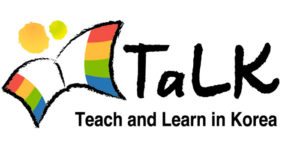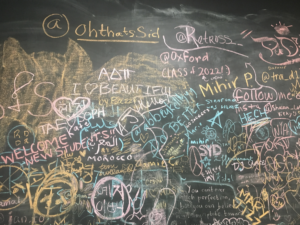Written by: Katherine Ahn
| Directions of the Statement of Purpose: Please use this opportunity to provide a clear and precise statement. Examples of topics may include: insights about teaching/learning, your potential role as a Scholar/Teacher based on your experience, self-introduction, family background, educational background, work experience, motive to apply, plan of service & other activities as a TaLK scholar, plan for further studies during your time in Korea, etc.
The following is not an essay of my Statement of Purpose, but an organizational outline of what I wrote about. |

1. Why South Korea?
My past experiences in South Korea immensely entailed being in my comfort zone by meeting friends and family. However, it is one thing to vacation in your motherland, where it is another to work and live there. South Korea is the location for where I can serve as a cultural ambassador for Korean Americans, teach English to primary students and continue to learn more about Korea through being a TaLK Scholar.
2. My Experience with CASIE (Center for the Advancement & Study of International Education)
Even though I do not have experience in teaching English, as a workshop leader for a non-profit pedagogy organization, CASIE (Center for the Advancement and Study of International Education), I presented information in varied and creative ways to IB teachers so that they can learn more about how to teach in an innovative and creative space. I also worked closely with the respective directors of this organization, who assisted me with difficult situations in the workshop and who encouraged my pedagogical ideas and put them into action. I presented a brief project on the interrelationship with language acquisition and theater, then acted as a mediator to facilitate discussion amongst teachers and present problem-solving strategies. By the use of theatrical elements such as acting and ensemble activities I will incorporate these elements as a TaLK English Teaching Assistant in a Korean classroom.
3. What I got out of CASIE – Teacher responsibility.
My experiences leading me up to the English Teaching Assistant opportunity taught me to recognize and encourage self-worthiness in students. Even though linguistically speaking, it is difficult to learn a language on a secondary school level, it is neither impossible to comprehend and produce a second language. It becomes the teacher’s responsibility to create a course where students feel confident and safe, while actively engaging with the target language. I truly want to create an environment where students can be passionate about learning a second language.
3. Community Involvement Plans in South Korea and in the US- Comfort Women History.
I have a passion in knowing more about the comfort women history. My exploration with the comfort women history is not limited o participating in demonstrations, but also, I want to contribute my English language to translating and interacting with survivors and observe how other schools teach the comfort women history. With that, I can carry on the known to the Korean American Greater Atlanta community and continue to advocate for the comfort women survivors, since there is a comfort women organization and memorial in Atlanta.
4. Final Statement – 3 key points
- As a Korean American pursuing a career in international education, I want to begin challenging myself personally and professionally in my motherland.
- The opportunity to teach in South Korea to primary school students will not only present me with leading and teaching opportunities, but also learn with students and other TaLK scholars.
- The TaLK program is an opportunity that palpably infuse a strong foundation to my career path in international education.



